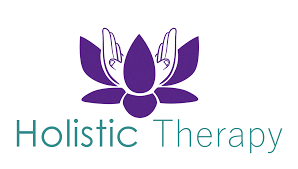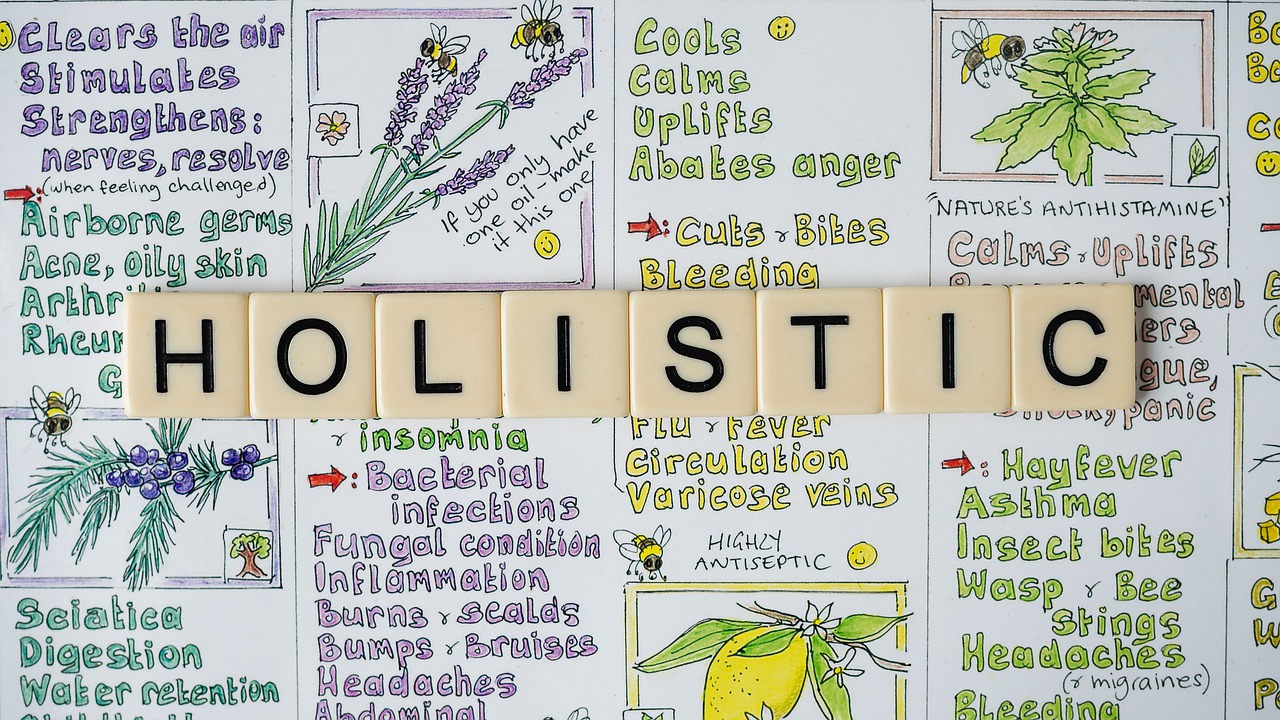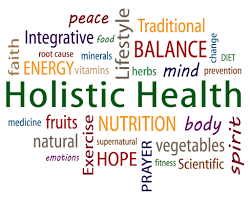Holistic therapy is a form of treatment that takes into account the whole person – body, mind, and spirit. It is a relatively new approach to healthcare, which has been gaining in popularity in recent years. We will look at the history and development of holistic therapy, as well as its theory and methods. We will also discuss the benefits of holistic therapy and some of the issues it can help with. And finally, we will hear from experts about how effective holistic therapy is – both overall and for specific issues.
Contents
Understanding Holistic Therapy

Holistic therapy is a form of treatment that takes into account the whole person – body, mind, and spirit.
It is a relatively new approach to healthcare, which has been gaining in popularity in recent years.
The term “holistic” comes from the Greek word holos, meaning “whole.” And indeed, holistic therapies aim to treat the whole person – body, mind, and spirit – rather than just the symptoms of a disease or condition.
Holistic therapies can be used to treat a wide range of physical and mental health conditions. They are often used in conjunction with conventional medical treatment. But some people do use holistic therapies as their sole form of treatment.
Theory And Method
The theory behind holistic therapy is that the whole person – body, mind, and spirit – must be considered to achieve optimum health and wellbeing.
Holistic therapies use a variety of methods to achieve this goal. These include:
- Counseling and psychotherapy
- Meditation and mindfulness
- Yoga and other forms of exercise
- Nutrition and dietary changes
- Herbal remedies and supplements
Exercises In Holistic Therapy
Holistic therapy can be practiced in many different ways, but one common approach is to use a combination of exercise, counseling, and dietary changes.
Many different types of exercises are key components of holistic therapy. However, some of the most popular include:
- Yoga
- Pilates
- Tai chi
- Qi gong
History And Development
The history of holistic therapy dates back to ancient times. The first recorded use of the term “holistic” was by the Greek physician Hippocrates in the fifth century BC.
However, it wasn’t until the 1960s that holistic therapy began to be formally recognized as a separate field of medicine. This was largely due to the work of pioneers such as Fritz Perls, who developed Gestalt therapy, and Carl Rogers, who developed client-centered therapy.
Unfolding Holistic Therapy

If you are considering attending holistic therapy, there are a few things you should know.
Who Can It Help
Holistic therapy can help treat a wide range of physical and mental health conditions. However, some of the most common include:
- Anxiety
- Depression
- Stress
- Insomnia
- Chronic pain
How Does It Work
Holistic therapies work on the principle that the mind, body, and spirit are all interconnected. They aim to treat the whole person, not just their symptoms. This approach is based on the idea that health is a state of balance and that illness occurs when this balance is disrupted. Thus, holistic therapies seek to restore balance by addressing the physical, mental, and spiritual needs of the person.
Needs That It Assess And Address
Holistic therapy takes into account almost every component, therefore, it adopts a wholesome approach by assessing and addressing needs at all levels possible.
- Physical Needs: The first step in holistic therapy is to assess the physical needs of the person. This may involve a physical examination, laboratory tests, and imaging studies. The therapist will then develop a treatment plan that includes diet, exercise, and other lifestyle changes.
- Mental Needs: The second step in holistic therapy is to assess the mental needs of the person. This may involve a psychological assessment, which can help to identify any underlying mental health conditions. The therapist will then develop a treatment plan that includes counseling, psychotherapy, and other mental health interventions.
- Spiritual Needs: The third step in holistic therapy is to assess the spiritual needs of the person. This may involve a spiritual assessment, which can help to identify any underlying spiritual needs. The therapist will then develop a treatment plan that includes prayer, meditation, and other spiritual interventions.
What To Expect
Most people who attend holistic therapy sessions will meet with a therapist for counseling. Subsequently, the therapist will help the person to identify and address the underlying causes of their condition.
Your therapist will take a holistic approach to your care and will work with you to develop a treatment plan that meets your individual needs. They may use a variety of techniques, such as massage, acupuncture, and meditation depending on a case-to-case basis.
The therapist may also recommend dietary changes and exercises in an attempt to help improve the person’s health. Your therapist will also provide you with education and support to help you make lifestyle changes that can improve your health.
Evaluating Holistic Therapy

There is a growing body of evidence that suggests holistic therapy can be an effective treatment for many different conditions.
- A systematic review of the research literature found that holistic therapies can help treat anxiety, depression, and stress.
- Another review found that yoga and meditation may help treat chronic pain.
- And a meta-analysis of studies on the use of aromatherapy found that it may help reduce anxiety and stress.
- However, more research will determine the effectiveness of holistic therapy for other conditions.
Benefits of Holistic Therapy
There are many potential benefits of holistic therapy. However, some of these include:
- improved physical health,
- improved mental health,
- increased sense of wellbeing,
- improved quality of life.
Criticism And Limitations
Holistic therapy is not without its critics. For instance, some of its criticisms are:
- Some claim that it is not based on any scientific evidence and that the benefits are due to the placebo effect.
- Others argue that it is nothing more than “pseudoscience” or “quackery”, there is no evidence to support the claims made by practitioners of holistic therapy.
- Some argue that holistic therapies can be harmful, especially if they replace conventional medical treatments.
- Still, others argue that holistic therapies are expensive and time-consuming. They claim that these treatments are not practical for most people.
The Placebo Effect
The placebo effect is a phenomenon in which a person experiences improvements in their condition after taking a medication or undergoing a treatment that they believe will help them, even though the treatment itself is inactive.
NOTE: Placebo effects are common in medicine and can play a role in the effectiveness of both conventional and alternative treatments.
How Effective Is It
The evidence for the effectiveness of holistic therapy is yet unclear. However, there are several possible explanations for these mixed results.
- One is that holistic therapies are often used as adjunctive treatments. It means they are used in addition to conventional medical treatment. This makes it difficult to tease out the specific effects of holistic therapy.
- Another possibility is that different people may respond differently to different types of holistic therapies. This makes it difficult to generalize about the effectiveness of holistic therapy.
- Finally, many of the studies on the effectiveness of holistic therapies are poorly designed and have methodological problems. This limits our ability to draw firm conclusions about the effectiveness of these treatments.
Finding a Suitable Therapist
If you have an interest in holistic therapy, then you need to keep a few things in mind while looking for a therapist. For instance:
- First, find a suitable therapist that matches your needs and preferences since there are many different types of holistic therapies.
- Second, it is important to find a therapist who is licensed and qualified.
- Third, make sure to ask the therapist about their training and experience.
- Forth, be sure to ask about the cost of treatment and whether your insurance will cover it.
- Be prepared to commit to a course of treatment. Holistic therapies are often used in combination with other treatments. So it is important to be patient and give the therapy time to work.
Pursuing Training In Holistic Therapy
If you have an interest in pursuing training in holistic therapy, there are a few things you should know.
- First, it is important to find a program that is accredited and offers the type of training you need. There are many different types of holistic therapies, so it is important to find one that suits your needs.
- Second, make sure to ask the program about their curriculum and the experience of their faculty.
- Third, be sure to ask about the cost of tuition and whether financial aid is available.
- Finally, be prepared to commit to a course of study. Holistic therapies are often used in combination with other treatments. So it is important to be patient and give the therapy time to work.
Hearing From Experts

Several experts have spoken out about the benefits of holistic therapy:
David Spiegel, M.D., professor of psychiatry and behavioral sciences at Stanford University School of Medicine and executive director of the Center on Stress and Health at Stanford said-
“Holistic therapies are an important part of our armamentarium in the treatment of illness. They can supplement other forms of treatment or as stand-alone treatments. There is evidence that they can improve outcomes and quality of life, and they have relatively few side effects.”
Similarly, Andrew Weil, M.D., a physician, author, and public advocate for integrative medicine said-
“Holistic medicine is a way of looking at the whole person – body, mind, and spirit. It considers all aspects of life when diagnosing illness and prescribing treatment.”
Case Study
Sarah is a 38-year-old woman who has been experiencing anxiety and depression for the past year. She has tried medication but found that it made her feel worse. Her therapist suggested that she try holistic therapy.
After meeting with her therapist, Sarah decided to try acupuncture and meditation. She also began to eat a healthy diet and exercise regularly. After a few months, Sarah found that her anxiety and depression had significantly improved. She was also able to discontinue her medication.
Resources
If you have an interest in learning more about holistic therapy or trying it out for yourself, several resources can help:
- The National Center for Complementary and Alternative Medicine (NCCAM) is a good place to start. NCCAM is a division of the National Institutes of Health (NIH). They provide information on a variety of topics related to complementary and alternative medicine, including holistic therapy.
- The website of the National Center for Complementary and Alternative Medicine has information on different types of alternative therapies, including their risks and benefits.
- The American Holistic Health Association (AHHA) is a national organization that provides information and resources on holistic health.
- The website of the Canadian Holistic Medical Association provides information on different types of holistic therapies and how to find a practitioner.
Conclusion
Holistic therapy is a type of treatment that focuses on the whole person, rather than just their symptoms.
The evidence for the effectiveness of this therapy is still not concrete. But there is a growing body of research that suggests it can be an effective treatment for a variety of conditions.
If you have an interest in trying this therapy, speak to your doctor or a qualified practitioner to see if it is right for you. Please note that this treatment cannot be a replacement for conventional medical treatment.
A Word From Therapy Mantra
Your mental health — Your psychological, emotional, and social well-being — has an impact on every aspect of your life. Positive mental health essentially allows you to effectively deal with life’s everyday challenges.
At TherapyMantra, we have a team of therapists who provide affordable online therapy to assist you with issues such as depression, anxiety, stress, workplace Issues, addiction, relationship, OCD, LGBTQ, and PTSD. You can book a free therapy or download our free Android or iOS app.


